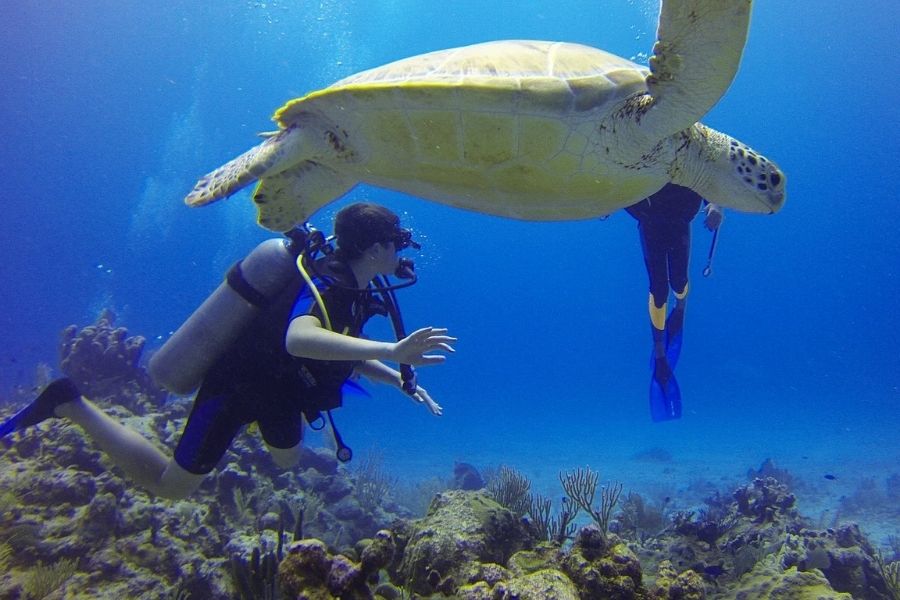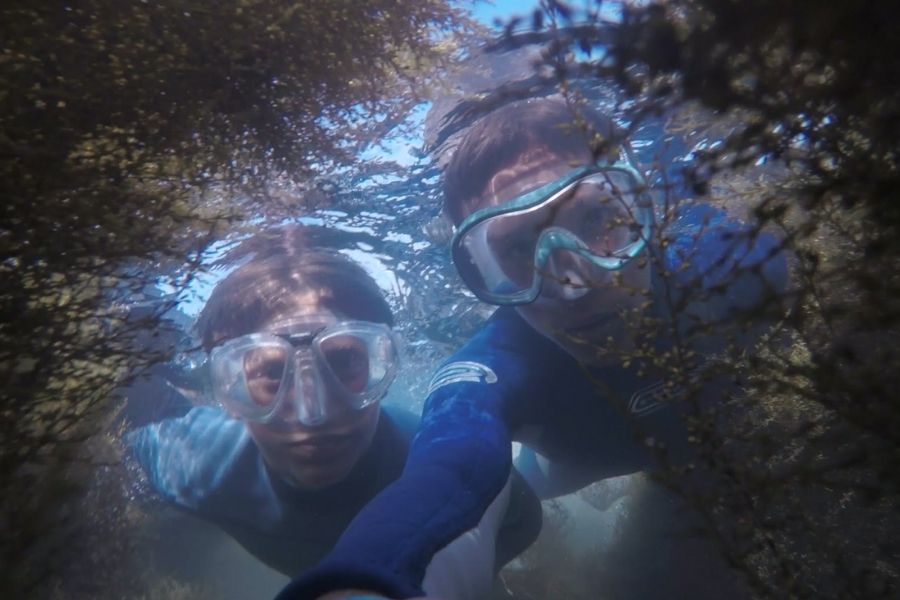🌎 The Pros And Cons Of Children Scuba Diving

Scuba diving is an amazing activity enjoyed by thousands of people all around the world. Every year, people travel all over the world to tropical destinations to learn how to properly and safely scuba dive. While scuba diving is most often seen as an adult activity, kids are getting into the sport at a younger and younger age, prompting many people to ponder the pros and cons of scuba diving for kids.
This article will explore this topic by covering some of the most important considerations from both sides of the argument.
Pros
1 – The Younger The Start The More Comfortable They Will Become
One of the best ways to get good at something is by starting at a very young age. While natural talent plays a significant factor in most things, there is no substitute for assimilating a skill into a growing child’s mind. Because of this, children who start scuba diving young are much more likely to feel comfortable and in control when in the water and much less likely to panic when they are older should something go wrong.
2 – Kids Who Dive Can Go On Holidays With Their Parents
Most of the time, kids who get into scuba diving at a young age do so because of their parents. When this occurs, it allows parents to take their children on scuba diving vacations, which can be very convenient. “Scuba diving holidays can be hard to organize if you have children who can’t or don’t partake as well. One of the main advantages to introducing kids to scuba diving early is they can spend more time with their parents when they decide to take a scuba diving focused trip,” writes Leanne Bradley, a project manager at Write my Australia and Write my essay.
3 – Scuba Diving Encourages Kids To Care About The Environment
The world under the sea is hidden to most of us, yet it contains the vast majority of all life on planet earth. Unfortunately, the ocean receives the majority of our pollution, and many people have an out of sight out of mind approach to the issue. When kids start scuba diving from a young age, it teaches them to appreciate and value the world’s oceans, and it will make them more conscientious of how their actions affect the environment when they’re adults.
4 – Keeps Them Active
Scuba diving is a very physically demanding activity and most people who partake regularly enjoy a higher than average level of fitness. “Not only does this keep them fit when they’re young, but it can also help them maintain their fitness throughout adulthood,” writes Jeremey Busch, a business writer at Resumention and Dissertation service.

Cons
1 – Unknown Physiological Effects Of Diving At A Young Age
Simply put, we simply do not know what effects scuba diving has on developing children. PALI, the largest scuba diving authority, recommends that children be at least ten years old before learning to scuba dive. Even still, no one knows what effect the activity can have on a developing heart and lungs.
2 – Scuba Diving Can Be Dangerous
Although tremendously rewarding, Scuba diving can also be very dangerous, and there is no shortage of things that could go wrong. Even children who have received a high degree of training may not be mentally mature enough to handle themselves in a troubling situation, especially if panic sets in.
There is also the issue of equipment failure. If for one reason or another, there is an issue with the oxygen tank, a smaller child may not be able to make it to the surface in time because of their smaller lung size.
3 – Scuba Diving Can Cause Equalization Issues
When scuba diving, a person must add air to their middle ear to equalize the pressure when making a descent. In adults, this air flows through a small passageway called the Eustachian tubes, which in children are small, flat, and underdeveloped. Because of this, equalization can be difficult or next to impossible.
If equalization is not achieved, it can have devastating effects on a child’s ear system and lead to sharp pain and potentially ruptured eardrums.
Elizabeth Hines – elizabeth.b.hines@gmail.com is a digital marketer and content writer at Student writing services and Rated writing. Most of her articles focus on the latest tech and marketing trends, paying particular attention to the new and innovative. In her spare time, Elizabeth also writes for Academized.
Last Updated on March 11, 2021


